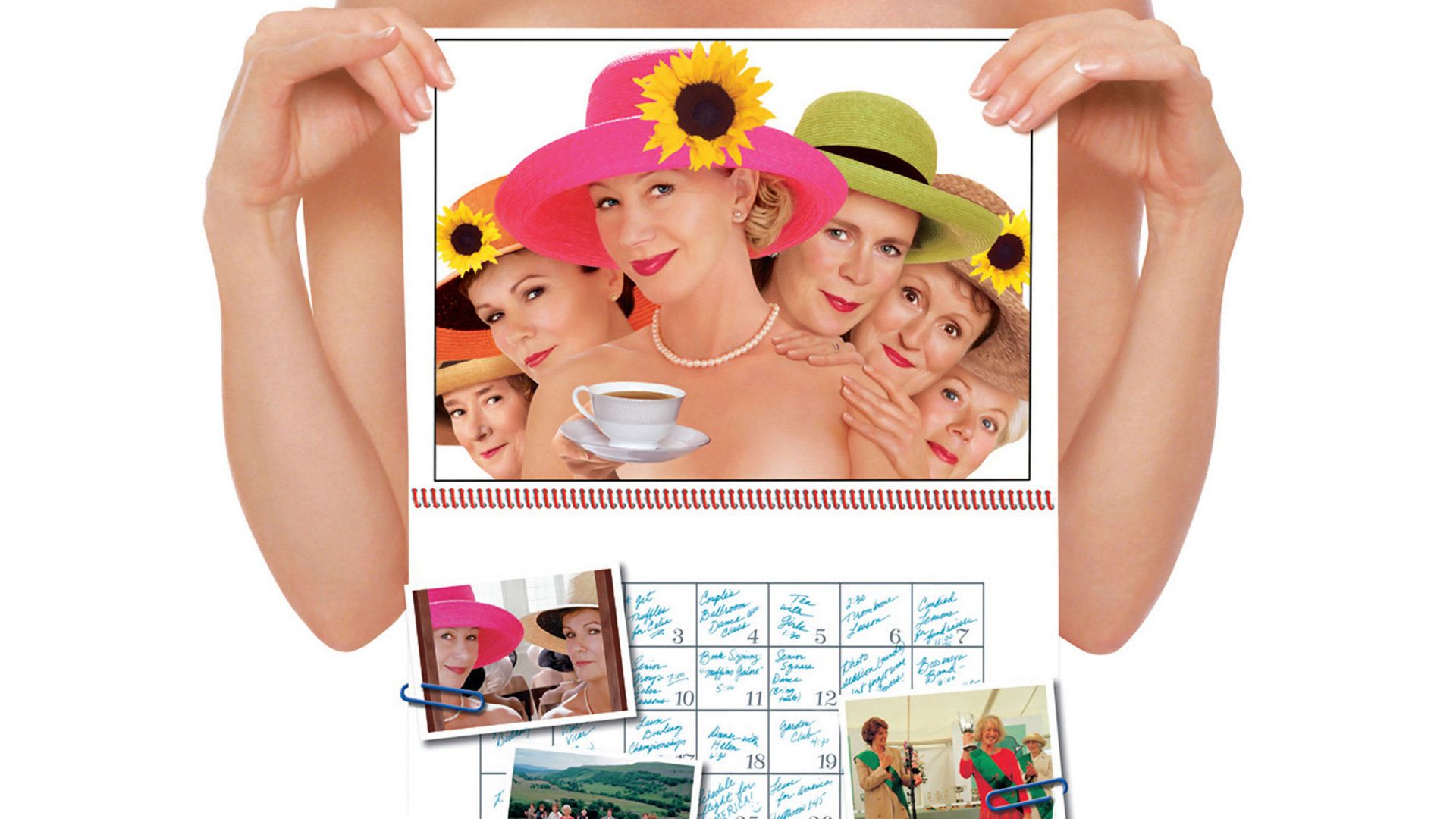Calendar Girls Biography
Source(google.com.pk)
Calendar Girls is a 2003 comedy film directed by Nigel Cole. Produced by Buena Vista International and Touchstone Pictures, it features a screenplay by Tim Firth and Juliette Towhidi based on a true story of a group of Yorkshire women who produced a nude calendar to raise money for Leukaemia Research under the auspices of the Women's Institutes in April 1999.[2]
Starring an ensemble cast headed by Helen Mirren and Julie Walters, with Linda Bassett, Annette Crosbie, Celia Imrie, Penelope Wilton, and Geraldine James playing key supporting roles, the film garnered generally positive reactions by film critics, and at a budget of $10 million it became a major success, eventually grossing $96,000,000 worldwide following its theatrical release in the United States.[1] In addition, the picture was awarded by the British Comedy Award for Best Comedy Film, and spawned ALFS Award Empire Award, Satellite Award and Golden Globe nominations for Mirren and Walters respectively.[3]
In 2008 the film was adapted into a stage play.
When Annie Clarke's husband John dies from leukaemia at an early age, her close friend Chris Harper, anxious to purchase a comfortable sofa for the visitors' lounge in the hospital where he was treated, hits upon the idea of printing a calendar featuring some of the members of the Knapely branch of the Women's Institute discreetly posing nude while engaged in everyday activities, such as baking and knitting, in order to raise funds. Her proposal initially is met with great scepticism, but she eventually convinces ten women to participate in the project with her. They enlist one of the hospital workers, an amateur photographer named Lawrence, to help them with the concept.
The head of the local Women's Institute branch refuses to sanction the calendar, and Chris and Annie go to a national congress of the Women's Institute in London to plead their case. They are told the final decision rests with the local leader, who grudgingly agrees to the calendar's sale. The initial printing quickly sells out, and before long the tiny village is bombarded with members of the international media anxious to report the feel-good story.
The women are invited to appear on The Tonight Show with Jay Leno in Los Angeles. While there, tensions arise between Chris and Annie. All the publicity surrounding the calendar has taken a toll on their personal lives, and they lash out at each other in angry frustration. Annie accuses Chris of ignoring her husband and son and the demands of the family business in favour of her newfound celebrity, while Chris believes Annie welcomes the Mother Teresa-like status to which she's been elevated that allows her to cater to the ill and bereaved who have bombarded her with fan mail. All is resolved eventually, and the women return home to resume life as it was before they removed their clothing
Six of the eleven women who were pictured in the original calendar sold the rights to their stories. They were Angela Baker, Tricia Stewart, Beryl Bamforth, Lynda Logan, Christine Clancy, and Ros Fawcett. In addition to the calendars, they also posed for a postcard known as "Baker's Half Dozen."
Whereas the actual Calendar Girls were members of the Rylstone Women's Institute, much of the film was shot in and around the village of Kettlewell in North Yorkshire, some ten miles away. Additional locations include Buckden, Burnsall, Coniston, Ilkley, Settle, Linton, Malham, Skipton, Westminster and Ealing in London, and the beach in Santa Monica. The penultimate shot of Chris and Annie walking down a street was filmed in Turville. Interiors were filmed in the Shepperton Studios.
The pictures in the film-version calendar were taken by professional stills photographer Jaap Buitendijk.
The film's soundtrack includes "You Upset Me Baby" performed by B.B. King, "Sloop John B" by The Beach Boys, "The Way You Do the Things You Do" by The Temptations, and "Comin' Home Baby" by Roland Kirk and Quincy Jones.
The film premiered at the Locarno Film Festival. It was later shown at Filmfest Hamburg, the Dinard Festival of British Cinema in France, the Warsaw Film Festival, the Tokyo International Film Festival, and the UK Film Festival in Hong Kong.
Calendar Girls Pictures

Calendar Girls Pictures

Calendar Girls Pictures

Calendar Girls Pictures

Calendar Girls Pictures

Calendar Girls Pictures

Calendar Girls Pictures

Calendar Girls Pictures

Calendar Girls Pictures

No comments:
Post a Comment